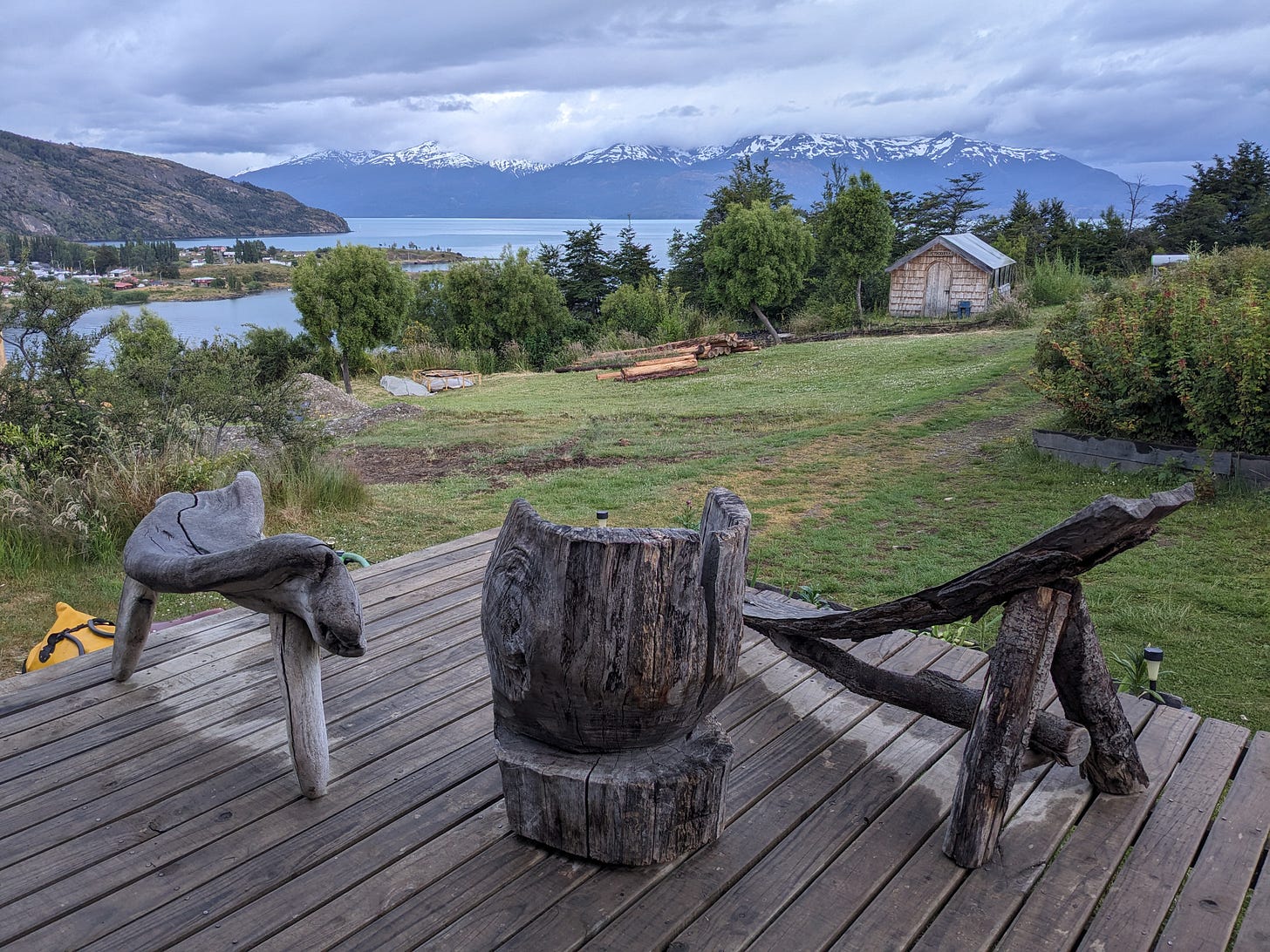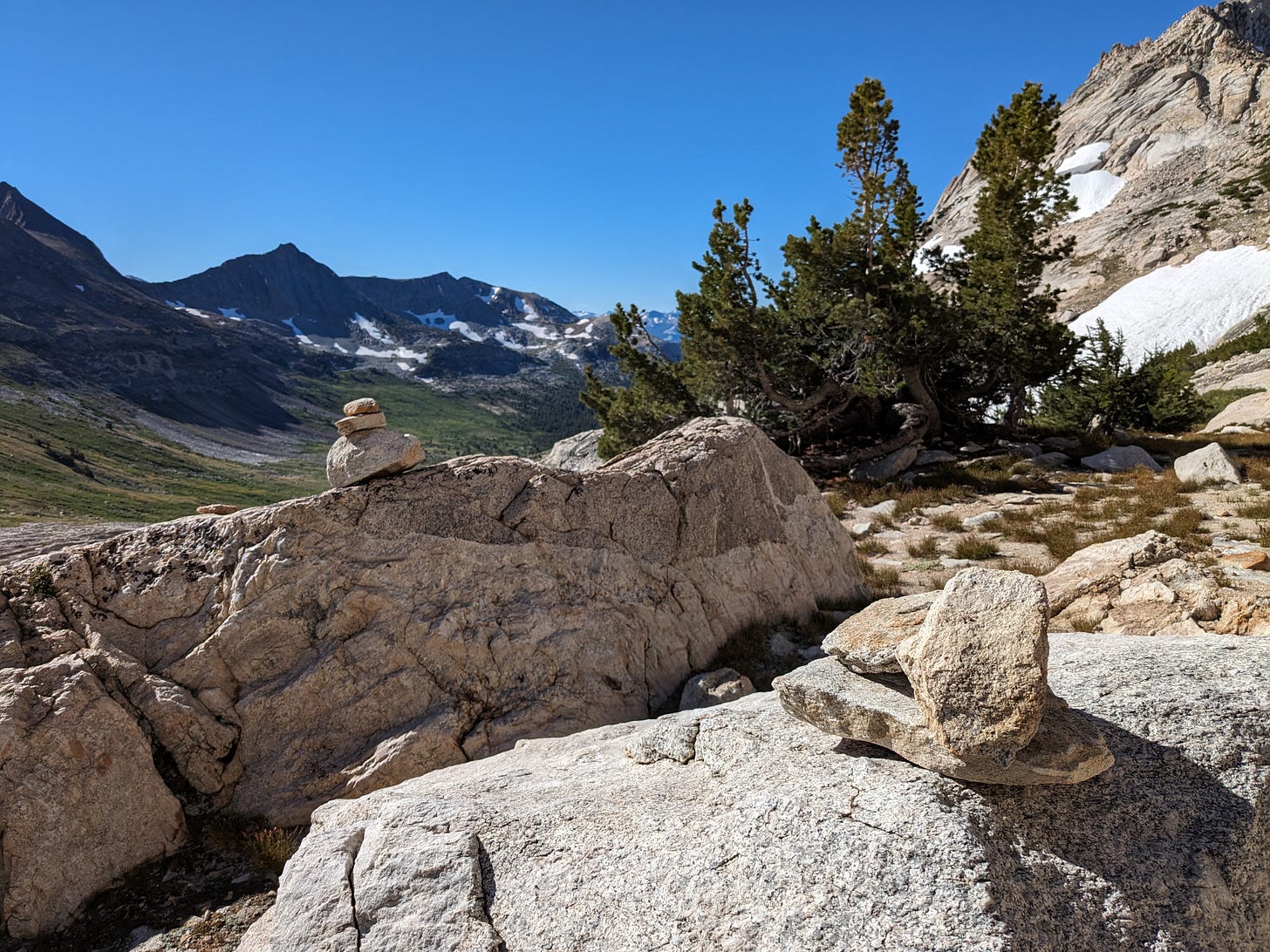You Must Live on the Edge of the Wilderness
on discovering meaningful work beyond the city walls
Imagine a small city in earlier times. Within its walls you find bread and fire, safety and security, warmth and companionship. You also find pestilence and politics, mobs and mafias, cancer and conformity.
One day, you decide that the bad outweighs the good. You leave the city to venture forth into the forests, hills, mountains, and deserts.
You relish the sweat on your skin, the crunch of snow under your feet, the taste in your lungs after a long hike. You feel free.
Yet you cannot live in these wild lands—or at least, not very long. For whatever skills and intuitions the ancients possessed, you do not. You miss the cross-pollination of minds, the labor-saving devices, the diverse foods and tongues, the chance to be of service, and the mere proximity of other humans. You sense that any further pursuit of radical independence may end in early death.
So you return, with doubt and hesitation, to the gates of the city.
But you do not enter.
Because there, nestled stealthily among a forest grove, just outside the city walls, lies an assembly of tents.
A thin trail of smoke catches your eye. A hushed murmur finds your ear. You only notice these details because of the quietude from which you have just emerged. Earlier, leaving the city, your ears rang and your eyes watered; you were in no state to discover such secrets. Now, you see more clearly. Here, in this liminal space, people are living.
Their clothes are rough. Their shelters are basic. Their meals are simple. But their smiles are wide and their bodies are healthy.
Each member pursues a specialized craft. Some days, they enter the city to trade and barter. Other days they do no commerce at all, choosing instead to climb the hills, swim the rivers, and sit around the campfire.
What these people lack in resources, they seem to enjoy in autonomy and flexibility. Like you, most hail from the city, where they maintain friends and contacts. But barring emergency or invasion, they will no longer dwell in the city. Living on the precipice between civilization and nature suits them best. Here, among like-minded misfits, they feel most at home.
Do you belong here, too?
The city is the secure, prosperous life for which you’ve been prepared. It’s the safe job, the low-risk career, the predictable path.
The wilderness is where your mind and body roam free—at least, until your resources run out. It’s the crazy idea, the endless journey, the unfiltered dream.
Many live their entire lives in cities. Their time in nature is brief and orchestrated.
Others venture too far into the wild: they get lost, lose their minds, and hit rock bottom. This is why loved ones encourage us to stay in the city.
To discover the kind of work that balances time, money, and purpose—work that might make you dirtbag rich—you must walk off the edge of the map. You must become disoriented. You must hunger, suffer, and fear that you may die. You must risk getting lost, losing your mind, and hitting rock bottom.
Because only then can you return to civilization’s edge, see what the city has to offer, and begin interacting with it, selectively, on your own terms.
Only when you’ve wandered among basin and range for years, feasting upon silence and solitude, can you return to the world’s periphery, wild-eyed and sunburned, to find your new people, create your new profession, and begin your new life.
Thank you, Julie, for reading a draft of this.
[Update: My friend Russell Max Simon responded to this piece.]




I just came back to this and read it again. Still excellent. I enjoyed it just as much the second time. Well done!
This is great Blake, and I love the imagery. You have to live on the edge of the wilderness both literally and figuratively. Have you come across Benton MacKaye's article that drove the vision and development of the Appalachian Trail? This piece reminds me a lot of that. As far as I can tell, he never imagined the trail as a venue for thru-hiking. He saw it as a network of connections between towns and the wilderness that would allow people to maintain just what you're talking about here, in a literal sense - an ability to easily escape from the edge of town into the woods. His focus was on human improvement, and he uses a great phrase to describe his vision - "a new approach to the problem of living." Here's MacKaye's original article - https://appalachiantrail.org/our-work/an-appalachian-trail-a-project-in-regional-planning/